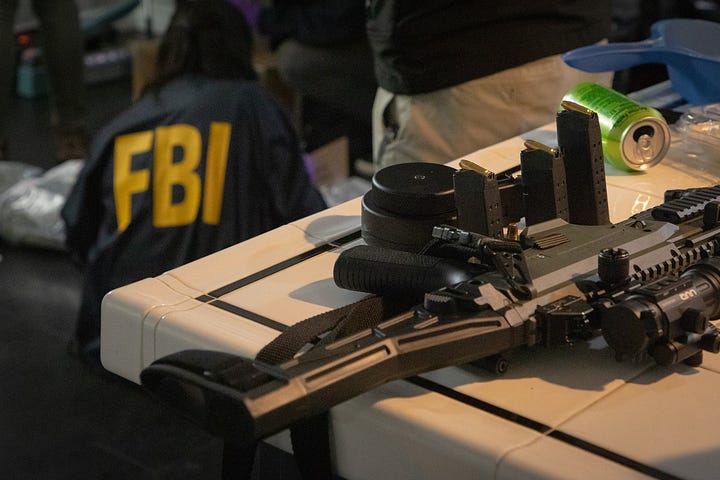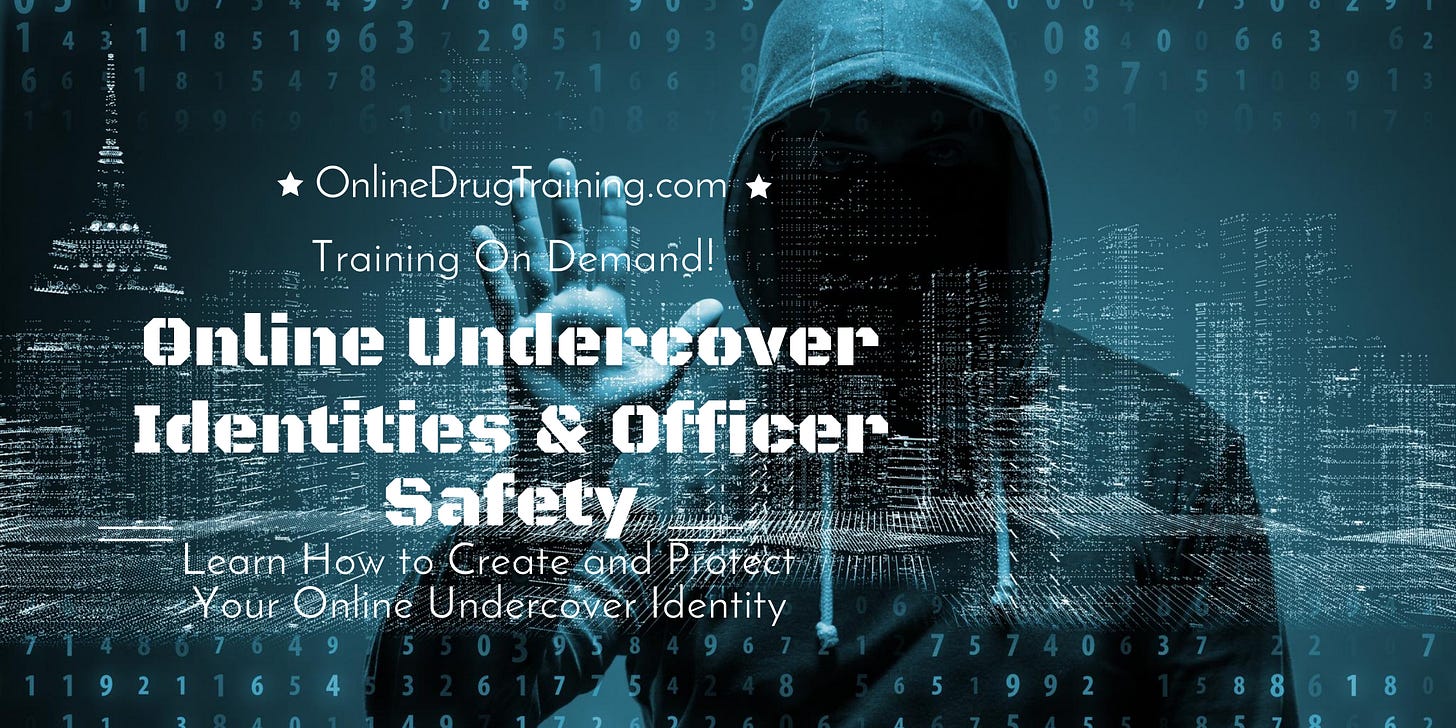Operation SpecTor: Global Effort Targets Darknet Drug Markets
Massive Operation Seizes Millions and Disrupts Vast Drug Networks
A recent large-scale operation, Operation SpecTor, has targeted darknet drug markets in a coordinated effort spanning nine countries and dozens of law enforcement agencies. The operation, which took place across the United States, Europe, and South America, resulted in seizures of over $50 million in cash and virtual currency, 1,875 pounds of potentially lethal drugs, and 288 arrests.
Global Collaboration to Combat Darknet Drug Trade
Operation SpecTor uncovered extensive networks of manufacturers, online supply chains, buyers, re-sellers, and users. This highlights the fact that the darknet, an encrypted part of the internet, only offers a superficial level of anonymity. Among the drugs seized was approximately 152 pounds of fentanyl, a synthetic opioid so dangerous that a dose of just two milligrams can be lethal.
The operation was led by the Joint Criminal and Opioid Darknet Enforcement (JCODE) team, created by the Department of Justice in 2018. The team collaborates with multiple U.S. agencies and international partners, including authorities in Brazil and Europol. In total, 135 arrests and over $38 million were seized overseas.
Record Numbers of Seizures and Arrests in Operation SpecTor
Operation SpecTor resulted in the largest number of seizures, including 117 firearms, and the highest number of arrests, with 153 in the U.S., for any JCODE operation to date.




The operation highlights the dangers of counterfeit opioids, as deaths caused by synthetic opioids like fentanyl increased to 71,238 in 2021, up from 57,834 in 2020, according to the Centers for Disease Control and Prevention (CDC). Over 564,000 people died from opioid-involved overdoses between 1999 and 2020, per CDC data.
Investigative Approaches and Success Stories
JCODE's approach to investigations is two-pronged, targeting the infrastructure of darknet marketplaces and analyzing data to develop leads for partner agencies worldwide. Several successful cases have already come from Operation SpecTor, including a 36-year-old Los Angeles man charged with leading an organization creating fake fentanyl and methamphetamine pills, and a 29-year-old Florida man charged with distributing fentanyl, methamphetamine, and heroin through darknet markets and the U.S. mail.
In Europe, Europol's Joint Cybercrime Action Taskforce assembled intelligence packages from German investigators, leading to hundreds of investigations and arrests of vendors on other darknet marketplaces.
Raising Awareness of Darknet Drug Dangers
To spread awareness about the dangers of drugs sold on darknet sites, the JCODE team initiated Operation ProtecTor this spring. Agents visited the homes of individuals identified as potentially selling or buying drugs traced back to the darknet markets, informing them that law enforcement was aware of their activities and urging them to stop.
The overall message from the recent operation is clear: the Justice Department will find and hold criminals on the dark web accountable for their crimes, regardless of their attempts to hide.
Continued Efforts to Combat Darknet Drug Trade
Operation SpecTor marks the fifth coordinated law enforcement action since the establishment of the JCODE team in 2018. The success of this operation demonstrates the increasing effectiveness of law enforcement agencies in addressing the darknet drug trade. By working together across multiple countries and jurisdictions, authorities are sending a powerful message to criminals operating in the shadows of the internet.
Educating the Public on the Risks of Darknet Drugs
As part of their ongoing efforts to combat the darknet drug trade, authorities aim to educate the public about the risks associated with purchasing drugs from darknet marketplaces. These drugs may appear legitimate but are often counterfeit and contain dangerous substances like fentanyl. Buyers should be aware that purchasing drugs from the darknet can have serious consequences for their health and safety, as well as legal repercussions.
Strengthening International Partnerships
The success of Operation SpecTor highlights the importance of strong international partnerships in combating the global darknet drug trade. By sharing intelligence, resources, and expertise, law enforcement agencies can effectively disrupt criminal networks and hold those responsible for the production and distribution of dangerous drugs accountable.
As the darknet continues to evolve and present new challenges, law enforcement agencies around the world must continue to collaborate, adapt, and innovate to stay ahead of criminals exploiting these platforms for illegal activities. The success of Operation SpecTor serves as a testament to the effectiveness of global cooperation in the fight against the darknet drug trade and a reminder of the ongoing commitment of law enforcement agencies to protect the public from the dangers of illicit drugs.
Frequently Asked Questions (FAQ)
Q1: What is Operation SpecTor?
A1: Operation SpecTor is a massive, coordinated law enforcement operation spanning nine countries and dozens of agencies across the United States, Europe, and South America. Its primary aim is to target darknet drug markets, which resulted in seizures of over $50 million in cash and virtual currency, 1,875 pounds of potentially lethal drugs, and 288 arrests.
Q2: What is the Joint Criminal and Opioid Darknet Enforcement (JCODE) team?
A2: The JCODE team is a Department of Justice-led initiative created in 2018, responsible for coordinating complex, multi-agency investigations into virtual marketplaces selling dangerous and illegal drugs around the globe. The FBI is among 12 U.S. agencies working with local partners in these operations.
Q3: What are some of the significant results of Operation SpecTor?
A3: Operation SpecTor resulted in 288 arrests, seizures of $53 million, 850kg of drugs, and 117 firearms. It has been the most successful operation of its kind since the establishment of the JCODE team in 2018.
Q4: What is the two-pronged approach of JCODE's investigations?
A4: The JCODE team targets the infrastructure of darknet marketplaces to ultimately take them offline. They then analyze the data, including usernames and accounts, to develop leads they can send to partner agencies around the world to build out investigations.
Q5: What is the primary message law enforcement wants to convey to criminals on the dark web?
A5: The primary message to criminals on the dark web is that they cannot hide from law enforcement, even in the furthest reaches of the internet. The Justice Department will find them and hold them accountable for their crimes.
Q6: What is the goal of Operation ProtecTor?
A6: Operation ProtecTor is an effort by the JCODE team to reach out to individuals whose identities were discovered during search warrant and arrest operations of prolific vendors. Agents visit these subjects’ homes, inform them that law enforcement is aware of their activities, and advise them to stop for their safety.
Q7: How important are international partnerships in combating the darknet drug trade?
A7: International partnerships are crucial in combating the global darknet drug trade. By sharing intelligence, resources, and expertise, law enforcement agencies can effectively disrupt criminal networks and hold those responsible for the production and distribution of dangerous drugs accountable.





